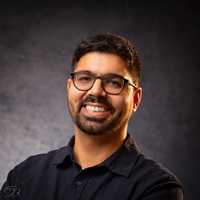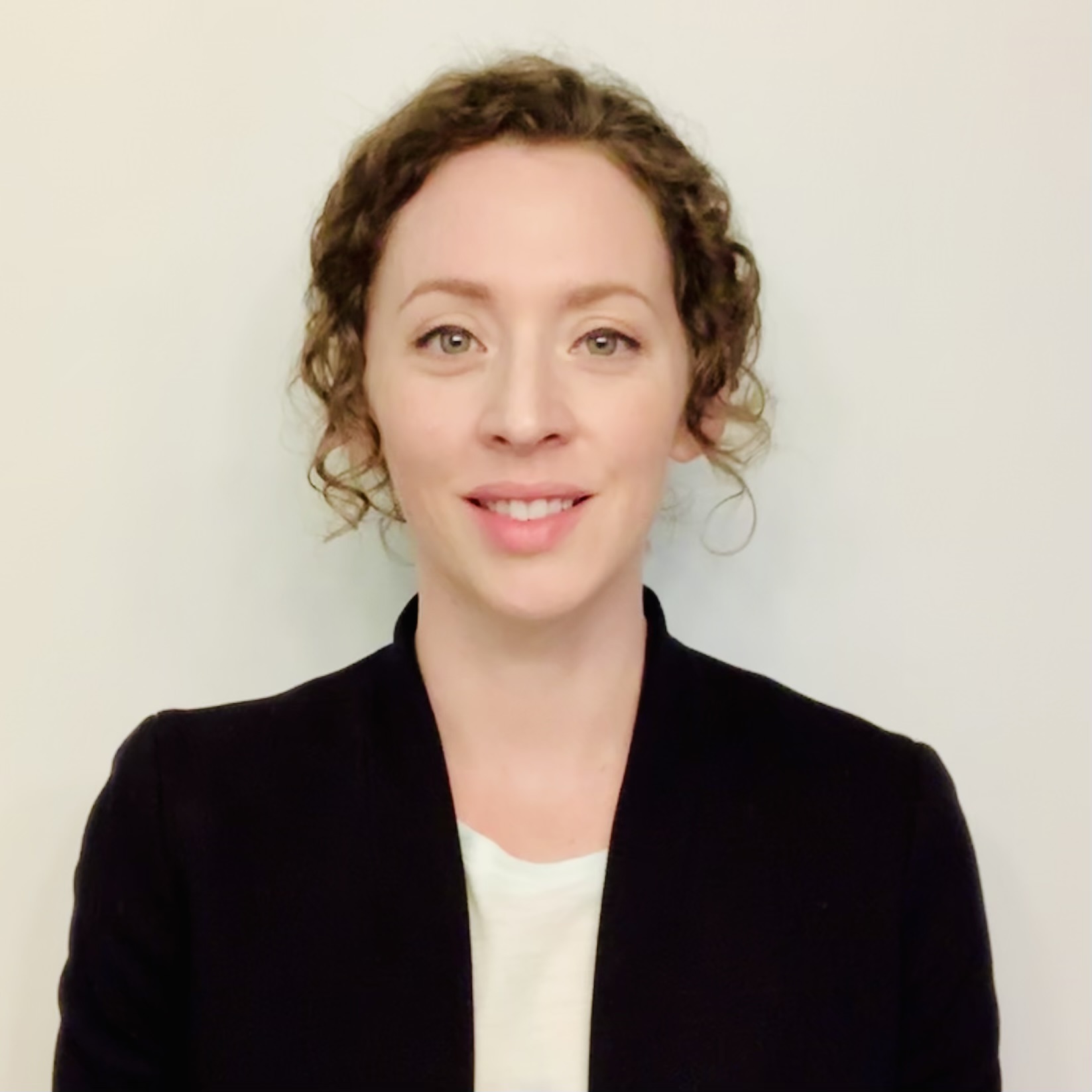Organic Chemistry II
CHEM-40011
Learn About Organic Chemistry II Online
This course serves as a continuation of Organic Chemistry I and provides further, fundamental overview of classical organic chemistry. After taking this course—students should gain general understanding of the concept of aromaticity and nomenclature of aromatic compounds—followed by more in-depth focus on two fundamental transformations: Electrophilic Aromatic Substitution (SEAr) and Nucleophilic Aromatic Substitution (SNAr). Students will learn the difference between Electron Withdrawing Groups (EWG) and Electron Donating (Releasing) Groups; and, various synthetic transformations involving aromatic compounds, including named reaction such as Friedel-Crafts Alkylation and Acylation.
The course also provides a general overview of two important spectroscopic methods of characterization of organic compounds: IR (Infrared) spectroscopy and NMR (Nuclear Magnetic Resonance) spectroscopy. Specifically, it covers analysis of IR and 1H Proton NMR spectra and introduction to 13C Carbon NMR spectroscopy.
The course continues to cover properties and synthesis involving some of the most important functional groups: ketones and aldehydes, stability and reactivity of a carbonyl group C=O; and, carboxylic acids and their derivatives (acid halides, acid anhydrides, esters, amides and nitriles). The course will then progress to provide a more-focused overview of enols and enolates, keto-enol tautomerization and key reactions involving enols: Haloform Reaction; Aldol Condensation; Claisen Condensation; Michael Addition, etc. Students will also be introduced to amines and anilines, their synthesis and chemical properties including aromatic diazonium salts formation and their synthetic utility.
The course concludes with an overview of the Diels-Alder reaction (also known as [4+2] cycloaddition): mechanism, dienes versus dienophiles and the formation of [2.2.1] bicycles (the difference between endo-products and exo-products).
This course is designed for biology, pre-medical, pre-nursing, preclinical, pre-health students and anyone who is interested in learning introductory organic chemistry. A foundation in general chemistry and completion of Organic Chemistry I is recommended to understand the topics of this course.
Format
This course is offered in an online asynchronous format. There are no set meeting times, however, students follow a weekly schedule and there will be deadlines to meet in terms of course requirements. This course cannot be completed at an accelerated rate.
Transferring for College Credit
Many courses at UC San Diego Division of Extended Studies may be eligible for college credit at UC San Diego or other institutions. Credit transfer is determined by the receiving institution. We recommend consulting with the registrar's office at your intended institution before enrolling to confirm how your courses will transfer.
Course Information
Course sessions
Section ID:
Class type:
This course is entirely web-based and to be completed asynchronously between the published course start and end dates. Synchronous attendance is NOT required.
You will have access to your online course on the published start date OR 1 business day after your enrollment is confirmed if you enroll on or after the published start date.
Textbooks:
Organic Chemistry as a Second Language 5th
by David R. Klein
ISBN / ASIN: 9781119493914
You may purchase textbooks via the UC San Diego Bookstore.
Policies:
Schedule:
Instructor:
 Kaivin Hadidi, Ph.D. Chemical Biology
Kaivin Hadidi, Ph.D. Chemical Biology

Kaivin Hadidi, Ph.D. is a chemical biologist with over 10 years of experience in small molecule R&D, biochemistry, and molecular biology. He holds a Ph.D. in Chemical Biology from UCSD where he focused on developing small molecule fluorescent probes for neuronal cell imaging. Currently Kaivin works as a Biochemist at BD Biosciences, and previously he spent 3 years working at Molecular Assemblies, Inc. in synthetic and surface chemistry R&D to help pioneer enzymatic DNA synthesis.
Section ID:
Class type:
This course is entirely web-based and to be completed asynchronously between the published course start and end dates. Synchronous attendance is NOT required.
You will have access to your online course on the published start date OR 1 business day after your enrollment is confirmed if you enroll on or after the published start date.
Textbooks:
Organic Chemistry as a Second Language 5th
by David R. Klein
ISBN / ASIN: 9781119493914
You may purchase textbooks via the UC San Diego Bookstore.
Policies:
- No refunds after: 2/9/2026
Schedule:
Instructor:
 Lindsay Cameron
Lindsay Cameron

Lindsay Cameron, Ph.D. is a Defense Advanced Research Projects Agency (DARPA) Entrepreneur in Residence at Lawrence Livermore National Laboratory (LLNL). In this role, she collaborates with scientists at DARPA and LLNL to advance cutting-edge research and technologies aimed at addressing some of the nation’s most complex national security challenges.
With a deep passion for chemistry, Dr. Cameron applies expertise in the field to tackle pressing energy-related issues, including energy storage, battery chemistry, and clean fuels. She earned a Ph.D. in Chemistry from the University of California, Irvine, following a Bachelor of Fine Arts (BFA) from the University of Louisville.
Prior to joining DARPA and LLNL, Dr. Cameron served as a Senior Scientist at Leidos, a national defense contractor. Additionally, she has taught several in-person and online chemistry courses for the San Diego Community College District and as a graduate student at UCI. With a strong enthusiasm for both chemistry and education, Dr. Cameron is excited to guide students through their studies.
Section ID:
Class type:
This course is entirely web-based and to be completed asynchronously between the published course start and end dates. Synchronous attendance is NOT required.
You will have access to your online course on the published start date OR 1 business day after your enrollment is confirmed if you enroll on or after the published start date.
Textbooks:
Organic Chemistry as a Second Language 5th
by David R. Klein
ISBN / ASIN: 9781119493914
You may purchase textbooks via the UC San Diego Bookstore.
Policies:
- No refunds after: 3/2/2026
Schedule:
Instructor:
 Kaivin Hadidi, Ph.D. Chemical Biology
Kaivin Hadidi, Ph.D. Chemical Biology

Kaivin Hadidi, Ph.D. is a chemical biologist with over 10 years of experience in small molecule R&D, biochemistry, and molecular biology. He holds a Ph.D. in Chemical Biology from UCSD where he focused on developing small molecule fluorescent probes for neuronal cell imaging. Currently Kaivin works as a Biochemist at BD Biosciences, and previously he spent 3 years working at Molecular Assemblies, Inc. in synthetic and surface chemistry R&D to help pioneer enzymatic DNA synthesis.
Section ID:
Class type:
This course is entirely web-based and to be completed asynchronously between the published course start and end dates. Synchronous attendance is NOT required.
You will have access to your online course on the published start date OR 1 business day after your enrollment is confirmed if you enroll on or after the published start date.
Textbooks:
Organic Chemistry as a Second Language 5th
by David R. Klein
ISBN / ASIN: 9781119493914
You may purchase textbooks via the UC San Diego Bookstore.
Policies:
- No refunds after: 3/30/2026
Schedule:
Instructor:
 Ryan Quinones
Ryan Quinones

Ryan E. Quiñones has a background in organic chemistry. He received his B.S. in Chemistry, summa cum laude, from the University of Florida (2015) and his Ph.D. in Chemistry from The Scripps Research Institute (2021). At Scripps Research, Ryan worked with Dale Boger on 1,2,3-triazine methodology, exploring different modes of reactivity and addressing key questions regarding stereochemistry and reaction kinetics. Ryan’s industrial career began at 1859, a startup biotech with a proprietary microfluidics screening platform using solid-phase DNA-encoded libraries (DELs), where he was responsible for method development of chemistry for the company platform, requiring expertise with solid-phase combinatorial chemistry for high-throughput experimentation.
Outside of the lab, Ryan enjoys spending time outdoors enjoying what our wonderful earth has to offer, including the beach, hiking, fishing, and gardening. Although few things can beat a home-cooked meal and video game night with his wife.
Section ID:
Class type:
This course is entirely web-based and to be completed asynchronously between the published course start and end dates. Synchronous attendance is NOT required.
You will have access to your online course on the published start date OR 1 business day after your enrollment is confirmed if you enroll on or after the published start date.
Textbooks:
Organic Chemistry as a Second Language 5th
by David R. Klein
ISBN / ASIN: 9781119493914
You may purchase textbooks via the UC San Diego Bookstore.
Policies:
- No refunds after: 3/30/2026
Schedule:
Instructor: Grant Seiler
Grant Seiler, Ph.D. completed a Bachelor of Arts in Chemistry at Carthage College. Following graduation, he relocated to San Diego to pursue graduate studies in the Department of Chemistry & Biochemistry at the University of California, San Diego. He earned a Master of Science degree from the Godula Lab and a Ph.D. in Chemistry under the mentorship of Chambers Hughes.
Dr. Seiler worked at BroadPharm, a chemical supplier based in Mira Mesa, before transitioning to a medicinal chemist at 858 Therapeutics, a pharmaceutical start-up in UTC. He has extensive teaching experience, having served as a teaching assistant for many years in the UCSD Department of Chemistry.
Section ID:
Class type:
This course is entirely web-based and to be completed asynchronously between the published course start and end dates. Synchronous attendance is NOT required.
You will have access to your online course on the published start date OR 1 business day after your enrollment is confirmed if you enroll on or after the published start date.
Textbooks:
Organic Chemistry as a Second Language 5th
by David R. Klein
ISBN / ASIN: 9781119493914
You may purchase textbooks via the UC San Diego Bookstore.
Policies:
- No refunds after: 5/11/2026
Schedule:
Instructor:
 Kaivin Hadidi, Ph.D. Chemical Biology
Kaivin Hadidi, Ph.D. Chemical Biology

Kaivin Hadidi, Ph.D. is a chemical biologist with over 10 years of experience in small molecule R&D, biochemistry, and molecular biology. He holds a Ph.D. in Chemical Biology from UCSD where he focused on developing small molecule fluorescent probes for neuronal cell imaging. Currently Kaivin works as a Biochemist at BD Biosciences, and previously he spent 3 years working at Molecular Assemblies, Inc. in synthetic and surface chemistry R&D to help pioneer enzymatic DNA synthesis.
Section ID:
Class type:
This course is entirely web-based and to be completed asynchronously between the published course start and end dates. Synchronous attendance is NOT required.
You will have access to your online course on the published start date OR 1 business day after your enrollment is confirmed if you enroll on or after the published start date.
Textbooks:
Organic Chemistry as a Second Language 5th
by David R. Klein
ISBN / ASIN: 9781119493914
You may purchase textbooks via the UC San Diego Bookstore.
Policies:
- No refunds after: 6/1/2026
Schedule:
Instructor:
 Lindsay Cameron
Lindsay Cameron

Lindsay Cameron, Ph.D. is a Defense Advanced Research Projects Agency (DARPA) Entrepreneur in Residence at Lawrence Livermore National Laboratory (LLNL). In this role, she collaborates with scientists at DARPA and LLNL to advance cutting-edge research and technologies aimed at addressing some of the nation’s most complex national security challenges.
With a deep passion for chemistry, Dr. Cameron applies expertise in the field to tackle pressing energy-related issues, including energy storage, battery chemistry, and clean fuels. She earned a Ph.D. in Chemistry from the University of California, Irvine, following a Bachelor of Fine Arts (BFA) from the University of Louisville.
Prior to joining DARPA and LLNL, Dr. Cameron served as a Senior Scientist at Leidos, a national defense contractor. Additionally, she has taught several in-person and online chemistry courses for the San Diego Community College District and as a graduate student at UCI. With a strong enthusiasm for both chemistry and education, Dr. Cameron is excited to guide students through their studies.